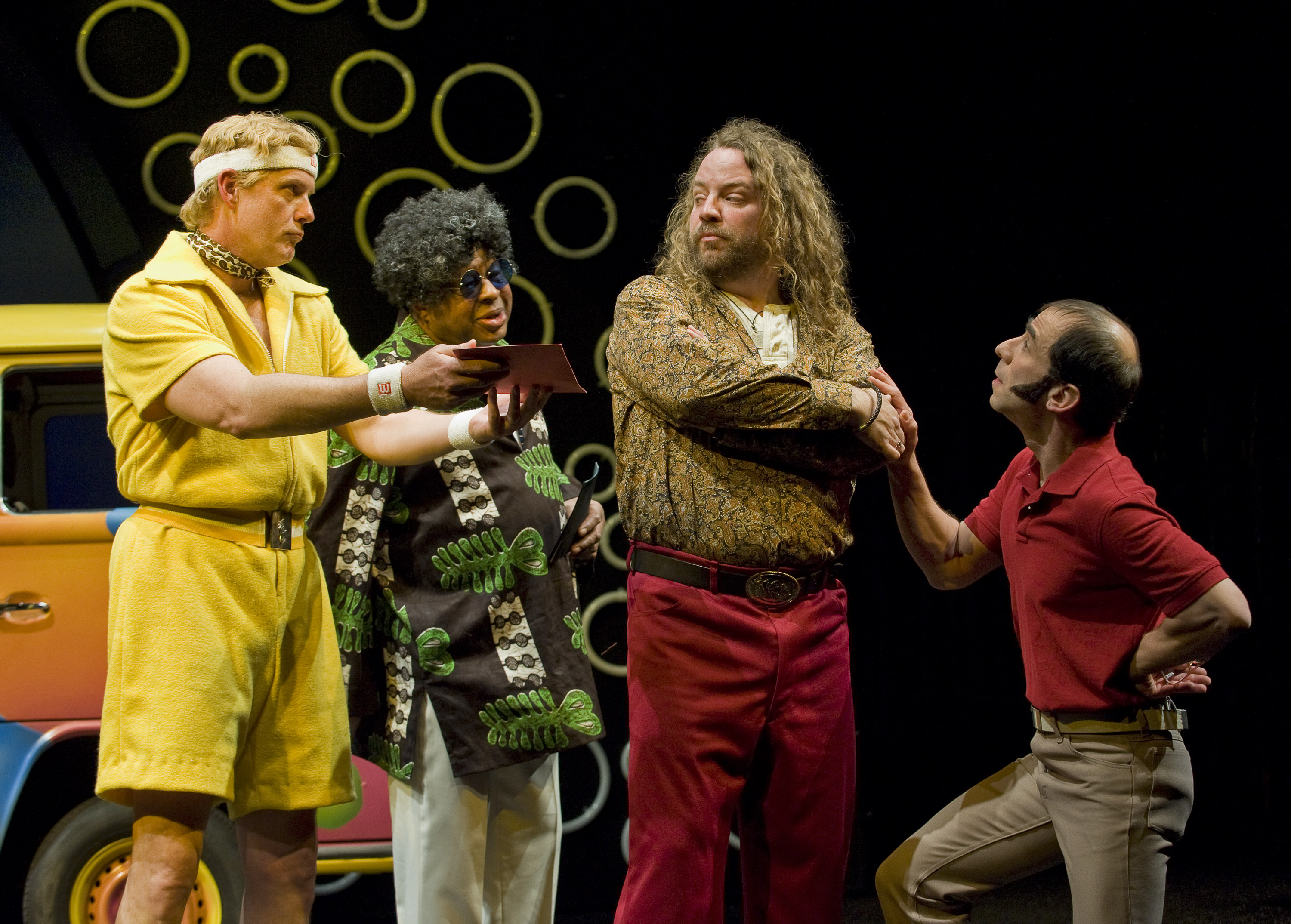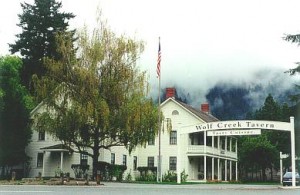
I walked into the open-air circle of the Oregon Shakespeare Festival‘s Elizabethan Stage last night a disgruntled man, and three hours later walked out, finally, with what I’d come to Ashland looking for: the emotional, intellectual and aesthetic transformation that fine theater can achieve. Thank goodness for Our Town.
The trip’s been fine: that glorious drive south of Eugene, where the climate changes and the road becomes a curving slice through the mountains. (Why is Rice Hill at the bottom of the hill and the Rice Valley exit at the top?) An overnight stop, with two good meals, at the Wolf Creek Inn, where Jack London stayed in a tiny room for a few weeks in 1911 and wrote a story called The End of the Story. (I’m going to have to look it up: I’ve never read it.)
 A quick stop at the nearby gold-mining ghost town of Golden, where volunteers are working to stabilize the remaining wood-frame buildings (the church has new glass in the windows) of a little boom town that was always different: Built by preaching miners, it had two congregations and no saloons. Two or three genuine markers lie in the little cemetery, but most of the headstones are fakes, set there many years ago for filming of an episode of Gunsmoke: So the not-so-wild West reinvents itself. And bless the volunteers, who have split new rails for the fence along the little road and are slowly reclaiming the natural state of the gouged-out mined areas below the town. May they outfox the woodpecker who was tap-tap-tapping away at the old church spire.
A quick stop at the nearby gold-mining ghost town of Golden, where volunteers are working to stabilize the remaining wood-frame buildings (the church has new glass in the windows) of a little boom town that was always different: Built by preaching miners, it had two congregations and no saloons. Two or three genuine markers lie in the little cemetery, but most of the headstones are fakes, set there many years ago for filming of an episode of Gunsmoke: So the not-so-wild West reinvents itself. And bless the volunteers, who have split new rails for the fence along the little road and are slowly reclaiming the natural state of the gouged-out mined areas below the town. May they outfox the woodpecker who was tap-tap-tapping away at the old church spire.
But in Ashland, aesthetically, it hadn’t been a good beginning. On Saturday afternoon, indoors at the Angus Bowmer Theatre, a gauche and vulgar version of A Midsummer Night’s Dream, a play that deserves far, far better. Dream is a wonder of the Western World, one of the most nearly perfect plays ever devised, and I’ve often thought it close to foolproof. Turns out it’s not. It can be defeated by a director and designers determined to overwhelm the magic of its language with insipid pop-cultural winks, incessant visual distractions, head-scratching hand gestures that appear to be choreographed but have no apparent link to the emotional lives of the characters or the plotting demands of the story, and a general busy-ness that makes it almost impossible for the actors to settle into the quiet glowing heart of the story. It was the Roman circus, not the magical wood. My congratulations to Ray Porter, who managed a fine low-comedy focus as Bottom, and Kevin Kenerly, who kept his dignity intact as Oberon while all around him were being engulfed in foolishness.
Continue reading Ashland report: Words fail (and rescue) the festival →
 Today, after a matinee performance of All’s Well That Ends Well, the extended Scatter Family leaves Ashland and the Oregon Shakespeare Festival for dinner, bed and breakfast at the old Wolf Creek Tavern north of Grants Pass before a Labor Day drive back to Portland.
Today, after a matinee performance of All’s Well That Ends Well, the extended Scatter Family leaves Ashland and the Oregon Shakespeare Festival for dinner, bed and breakfast at the old Wolf Creek Tavern north of Grants Pass before a Labor Day drive back to Portland.
